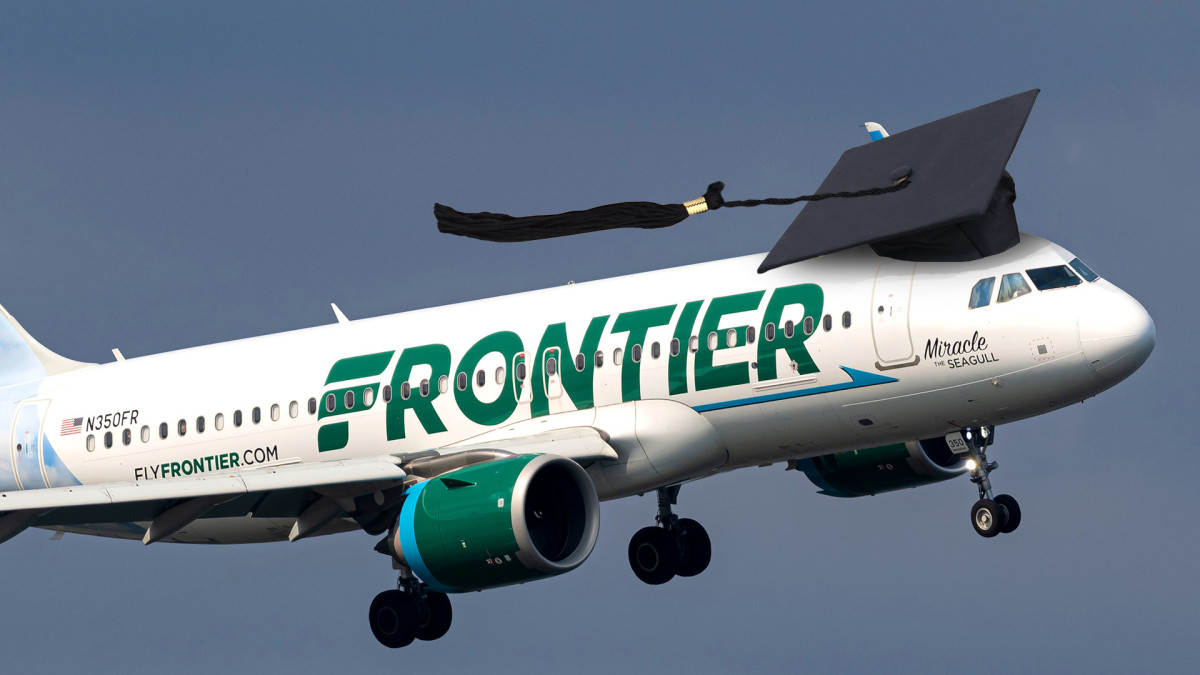
Five pilots have reached a settlement with budget carrier Frontier (ULCC) -) resolving charges the airline discriminates against pregnant and lactating employees.
The case stems from charges filed by the U.S. Equal Employment Opportunity Commission in May 2018 and a lawsuit filed in December 2019.
DON'T MISS: Spirit Airlines stock is falling as JetBlue merger decision nears; here's what you need to know
The Denver-based airline will update or comply with existing policies that impact pregnant and lactating employees.
Frontier Airlines will be one of the first airlines to permit pilots to pump breastmilk in the cockpit during noncritical phases of the flight, enabling lactating pilots to continue working.
The announcement was made by the American Civil Liberties Union, ACLU of Colorado, Denver-based legal nonprofit Towards Justice and the firm Holwell Shuster & Goldberg.
Settling the lawsuit filed in December 2019 “does not admit any liability” by Frontier.
Meeting needs of mothers
"This settlement should serve as a strong message to employers – especially airline employers – that reasonable accommodations such as those agreed to by Frontier are good for workers, good for families, good for business, and required by the law,” Aditi Fruitwala, staff attorney for the ACLU's Center for Liberty, said in a statement.
Fruitwala said that many companies purport to be family-friendly but fail to provide any support to employees who are pregnant or lactating.
“We’re hopeful this will inspire more change and stronger protections for workers across the airline industry," she said.
“We are proud to be at the forefront of accommodating the needs of pregnant and breast-feeding mothers in the airline industry,” Jacalyn Peter, Vice President, Labor Relations, Frontier Airlines, said.
“Thanks in part to advances in wearable lactation technology, the parties were able to reach an amicable resolution of this case that also maintains our commitment to the highest safety standards.”
In March, Rebecca Lutte, an associate professor at the University of Nebraska at Omaha’s aviation institute, told a U.S. Senate committee that "attracting, retaining, and advancing women in aviation is critical to the U.S. aviation industry’s safety, sustainability, profitability, and ability to innovate."
"Women make up almost half the workforce, yet for decades, the introduction of women into the aviation industry — in nearly every functional specialty — has been relatively stagnant," Lutte, a commercial pilot and flight instructor said in her statement.
Addressing 'barriers to talent'
She said that women make up less than 10% of the total FAA certificated pilots and only 5% of airline pilots.
"No other industry connects humanity like aviation," Lutte said. "It expands to all corners of the globe and all aspects of our lives."
"Aviation is fundamental to the U.S. military and transportation infrastructure," she added, "and a key economic engine for our country and the world — contributing 5.2% to the U.S. gross domestic product and generating more than eleven million jobs."
Lutte cited a Boeing (BA) -) forecast that found there will be a need for 602,000 new civilian pilots and 610,000 new maintenance technicians worldwide over the next 20 years.
"Expanding aviation’s workforce pipeline is not about lowering standards," she said. "It's about addressing the real and systemic barriers to talent."
As of 2021, Air India was the leading major airline in terms of female pilots in the world, with roughly 12.7% of its pilots being female, according to Statista.
Hawaiian Airlines (HA) -) has the highest percentage of female pilots out of all U.S.-based carriers, USA Today reported in April.
The next U.S.-based airline carrier with the most female pilots is United with 7.7%, USA Today said, citing the International Society of Women Airline Pilots: ISA+21.
Get exclusive access to portfolio managers’ stock picks and proven investing strategies with Real Money Pro. Get started now.







